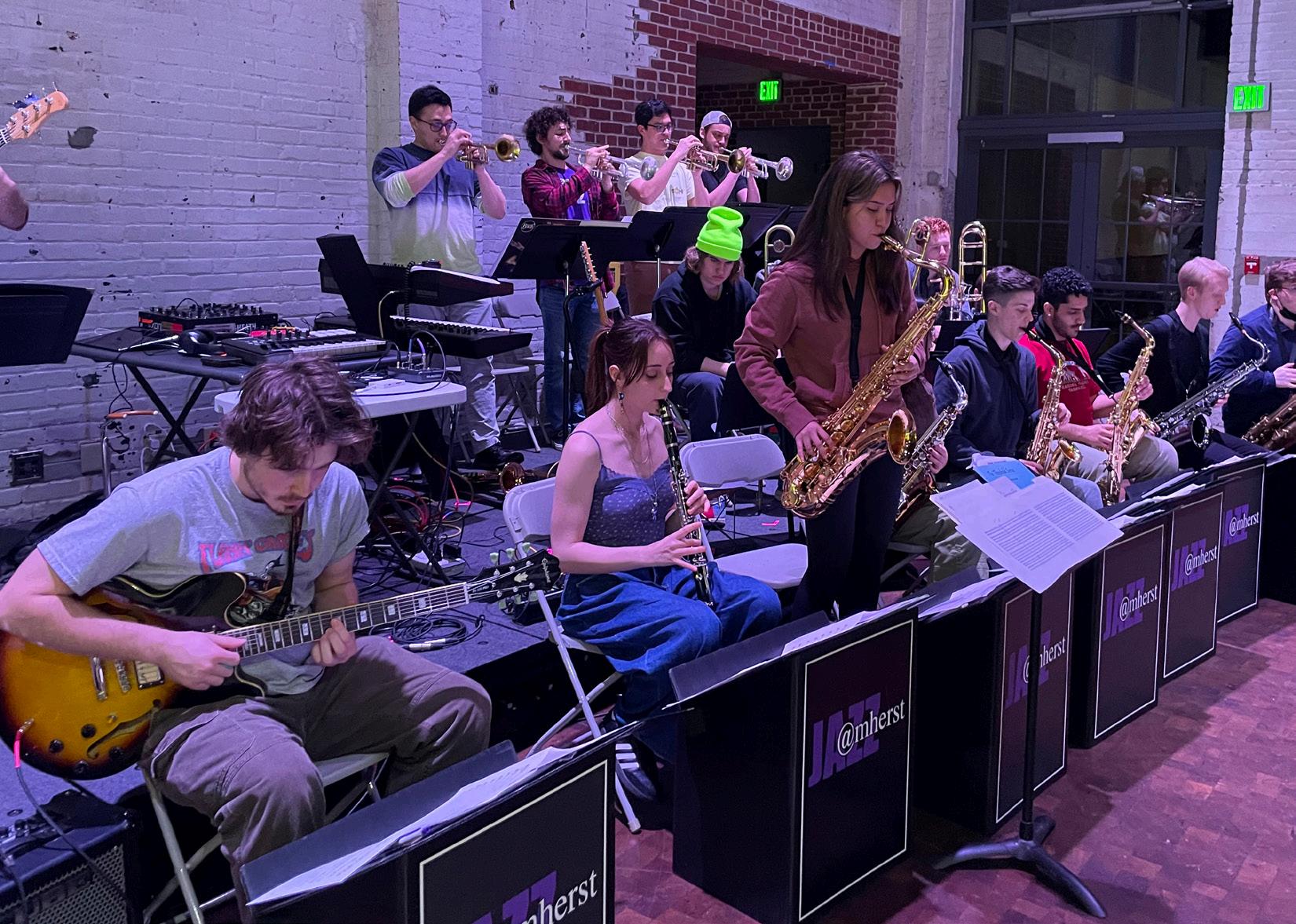
3 minute read
Students Raise Funds and Awareness Following Earthquake
Continued from page 1 tragedies for the country, which has been afflicted in recent memory by war and economic crisis.
“Because of the continuous pain that Syria has experienced over the years, it’s like there’s nothing more that you can cry about at this point,” she said. “So it’s a little hard in that way, because it’s very much a battle that you have to deal with by yourself. Maybe you can try to talk to other people who share your identity, but those are people who are also impacted, and grieving and need support.”
Advertisement
Although many people who aren’t from the affected region checked in with her about how she was doing, Hallak said, at times it felt as though they could not understand the reality of her pain. She said that this often happens when a tragedy strikes the Middle East.
“Either we’re sensationalized — our pain is sensationalized — or we’re just completely forgotten about, and it’s kind of whatever is easier for people to do that they do,” she said. “It feels like maybe people don’t see us as people anymore.”
All of the students The Student spoke to agreed that it felt like much of the broader campus community was not paying very much attention to the ongoing catastrophe in Turkey and Syria.
“There was a large percentage of people who didn’t know what happened in Syria or didn’t mention it at all, which didn’t really surprise me because things that happen in the Middle East are unfortunately often not talked about enough. But I was surprised that even students at Amherst College, who are usually quick to take action and talk about these things, did not,” Kasbo said. “I think if this had happened in a country outside of the Middle East, we would be talking about it in almost every single class, but unfortunately that’s not the case, and it's a shame to see it.”
Kasbo said that community members would benefit from increasing their awareness of the ongoing impact of the earthquake, and what’s happening in the Middle East in general.
For his part, Ziada noted that statistical figures cannot capture the extent of what happened. “When you read about [the earthquake], you just read the numbers,” he said. “But if you go deep into the cases, it’s very, very catastrophic. … A lot of families lost everything they have. So I wish people got more tangible exposure to what happened.”
In terms of the college administration’s response to the earthquake, the students expressed disappointment at the lack of a public-facing statement of support.
In an email statement to The Student, President Michael Elliott confirmed that he had personally reached out to MENAA leadership to offer support for their fundraising efforts. He added that the Office of Student Affairs had sent messages to students from the affected region to offer help and resources.
While the students who spoke to The Student said they appreciated these gestures of support, they were in agreement that a public statement of support from the college could have brought greater awareness to the catastrophe among the Amherst community.
In response, Elliott wrote that the college’s “focus is more on oneto-one direct support and, where appropriate and feasible, pursuing tangible programs or events rather than issuing statements that are not tied to some activity on campus.”
“Our feeling is that it is important to engage in meaningful activities that are tied to our work as an academic, educational institution, while simultaneously ensuring that those who are impacted by tragic, violent events have the resources that they need,” he added. “The earthquakes in Türkiye and Syria have devastated that region of the world, and we continue to offer support in many ways to our students from that region.”
The students emphasized that, in addition to offering words of support and spreading awareness, it was important to provide material support to help the region recover from the tragedy.
Hallak and Kasbo are both E-board members of MENAA, and have contributed to the organization’s fundraising efforts.
MENAA members set up a table outside of Val this past Monday during lunch. One of the students who ran the table, Rei Iranmanesh ’25, explained that the organization was selling gift bags containing traditional Middle Eastern treats — including sunflower seeds, noodles, and dried fruit.
Part of the goal, she explained, was to highlight Middle Eastern culture, while also raising relief funds. The effort was a success, she said, and MENAA plans to continue to fundraise the rest of this week.
Members of the MSA also tabled to raise funds for earthquake relief this past week. On Saturday, they sold Dunkin’ Donuts, and one of the students behind the effort, Noor Rahman ’25, described it as a success. The MSA plans to table again later in the week.
Rahman emphasized the importance of relief donations. “Fundraising is effective,” she said. “There’s people who need money. … It’s a good place to start.”
But she added that having a presence in Val also helps to increase awareness across campus of the impact of the earthquake, and encourage more people to pay attention to what’s happening in the region. “I think acknowledgement [of what has happened] is a bare minimum,” she said. “There's not a lot we can do. But I think acknowledgement goes a long way.”
Donations for disaster relief in Turkey and Syria can be made to MENAA (@MENAA_AC on Venmo) and the MSA (@ac_msa on Venmo).










